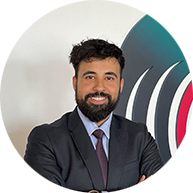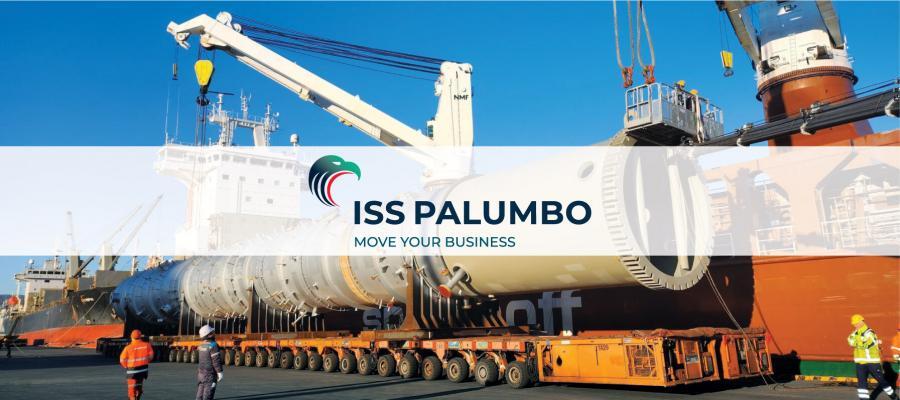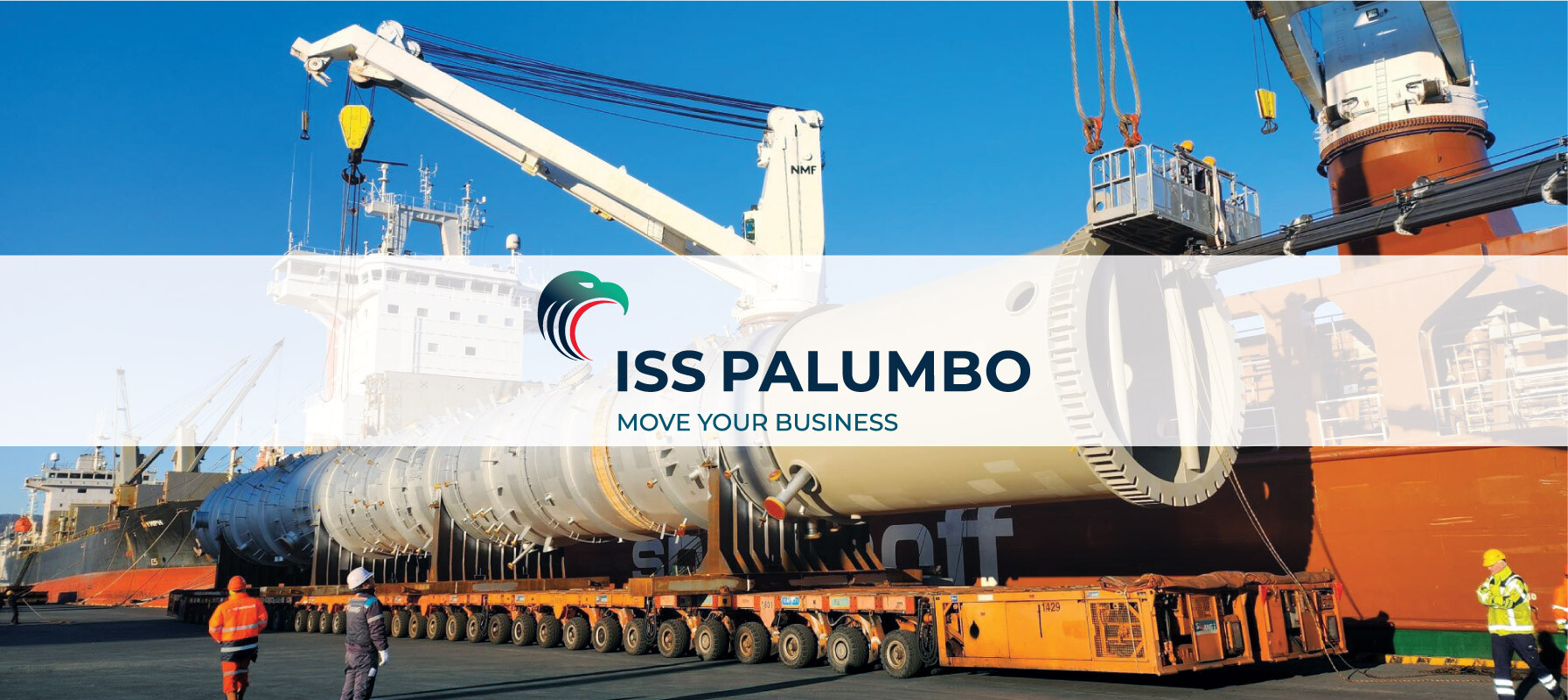Interview with
Mr. Ugur Er
Global Network Development Director

First of all Ugur, can you tell our readers about ISS Palumbo as a company established in Italy and also about the ownership of the company?
In 1974, Andrea Palumbo founded the transport company with the same name; over the years the Palumbo company affirms its role in the market, becoming a leader in the field of international shipping, specializing in Oil & Gas, and integrated logistics.
In 2012, the strategic partnership with Inchcape Shipping Services – a world leader in the maritime field with over 230 offices located in 60 countries around the world – gave birth to the current ISS PALUMBO: a perfect combination of professionalism, experience and global presence.
ISS Palumbo, led by the Palumbo family, has thus expanded its range of services, specializing in the management of large industrial projects in the energy field. The company boasts particular know-how in the Oil & Gas sector, where it provides integrated logistics solutions, port logistics and maritime services.
I understand that you are active in North Africa. There is a good relationship in trade and politics between Turkey and the countries of Algeria, Libya and Tunisia. Can you elaborate to our readers about your office network and setup in those North African countries?
The conflict between Russia and Ukraine led to a shift in Europe’s energy policy towards diversification of energy sources, including an increased reliance on North African oil and gas. Europe seemed to decide to reduce its dependence on Russian gas which resulted in a major increase in Oil & Gas projects in North African countries such as Algeria, Libya, and Egypt, which are major oil and gas producers.
As we have demonstrated our ability to provide reliable logistics solutions for energy-related projects over years, we are ready again to support our partners in these relatively difficult countries to work in.
We established our Egypt office in 2010, and for the last 13 years we have been in a leading position for not only project transports but also for marine agency services. We have similar capability both in Libya and Algeria with the support of our local partners and representatives.
Do you have experience in handling project cargoes into Turkey and North Africa? Could you provide our readers with some examples (photos/video etc) of projects you have handled?
We have managed plenty of projects both in Turkey and North Africa. I’m glad to present you with a few photos. You can find much more in our Linked-In profile.
Libya is a special country and seems in a mess. What can you tell our readers about logistics to/from Libya? Is it possible? What is the best way and which ports are the best ones to utilise? Algeria is another kettle of fish. What can you tell us about Algeria logistics wise?
Libya is indeed a country that has experienced significant challenges in recent years, which have had major impacts on logistics operations. However, we have good know-how about managing logistics to and from Libya with careful planning and coordination.
Libya has several ports that can be utilized for logistics operations. The best ports to utilize would depend on the specific requirements of the project or shipment. Some major ports in Libya include Tripoli, Benghazi, Misrata, and Tobruk. These ports have facilities both for container handling and general cargo operations.
It’s also important to note that the infrastructure in Libya has been impacted by political instability and conflict. As a result, the condition of roads, railways, and other transportation infrastructure may vary. Additionally, security concerns need to be considered when planning logistics operations in the country.
Algeria, on the other hand, has a more stable environment compared to Libya, but there are still important factors to consider for logistics operations: Algeria has a relatively well-developed transportation infrastructure, including ports, airports, and road networks. Algiers, Oran, and Annaba ports offer facilities for handling various types of cargo with a -respectively- good quality of work. Furthermore, Algeria has an extensive road network, making land transport a viable option for moving goods within the country or to neighboring regions. However, road conditions can vary, and it’s important to assess the specific routes.
It’s also essential to familiarize yourself with Algerian customs procedures and regulations to ensure smooth clearance of goods. Compliance with local requirements, such as documentation and licensing, is crucial for efficient logistics operations.
Currently, Algeria is a member of the Arab Maghreb Union (AMU) and the African Union (AU), among other regional organizations. These memberships may provide opportunities for trade facilitation and cooperation, which can positively impact logistics operations.
Overall, while both Libya and Algeria present unique logistics challenges, with careful planning, local expertise, and a thorough understanding of the local environment, it is possible to conduct successful logistics operations in these countries.
Where do you currently have offices under the ISS Palumbo brand? Are you presently a member of any international networks?
As the ISS Palumbo brand, we have 20 offices around the world with over 200 project logistics professionals. We are certified by BIFA, IATA, FIATA and FPAL.
We also hold 3 major quality certifications from Bureau Veritas which are: ISO 14001 / ISO 9001 and ISO 45001.
Yes, we are member of CLC Projects Network.
How about the Corona situation now in Turkey and North Africa. Is it finally over?
The Corona situation in Turkey and North Africa is not over yet. Although the number of cases and deaths has decreased significantly in recent months, there is still a risk of new outbreaks. It is important to continue to follow the public health guidelines, such as wearing a mask, social distancing, and getting vaccinated in these regions.
In Turkey, the number of new cases per day has been declining since January 2023. The country has also seen a decrease in the number of deaths from COVID-19. However, there are still some areas of Turkey that are experiencing high rates of infection. For example, the southeastern region of the country has seen a recent surge in cases.
The situation in North Africa is similar to that in Turkey. The number of cases and deaths has decreased significantly in recent months, but there is still a risk of new outbreaks. Some countries in North Africa, such as Morocco and Tunisia, have lifted most of their COVID-19 restrictions. On the other hand, Algeria and Egypt still have significant restrictions on duty.
Some major shipowners are now trying to act as freight forwarders and want to do it all door-to-door. Do you face the same issues in Turkey and North Africa? What is your opinion about this? Do you think the shipowners will be successful in cutting out the forwarders?
This is a trend that is being seen in many parts of the world, including Turkey and North Africa.
They believe that they can provide a better service to their customers by offering a one-stop-shop for all of their shipping needs and make more money by cutting out the “middleman”. However, there are significant challenges waiting for shipowners when they try to act as freight forwarders. First, they need to have a good understanding of the local market which is not the case at the moment. Furthermore, they do not seem to well understand the differences between the regulations that govern freight forwarding and shipping. This will be a major task for them to face in the near future.
It is still too early to say whether shipowners will be successful in cutting out the freight forwarders. However, it is worth watching how it develops.
How many years have you been in the logistics field? What was your background before settling in your current position?
This is my 15th year in project logistics. I used to work for DB Schenker for a very long time (like half of the sector did ?) and got all my basic education in this field. It was fascinating for me to be a part of the team, and I learnt a lot. Two years ago I met with Mr. Filippo Palumbo and decided to work with him as he is the most ambitious and experienced projects logistics professional that I have ever met. Now I have a lot to learn from him, too, on our journey together.
How would it be best for our readers to get in touch with you?
All our partners can reach me via my mail ugur.er@iss-palumbo.com, but I’m always available on my mobile too +90 532 695 98 91 for any kind of urgent matters.









